Abstract
Analysis of the responses of 1,247 health care providers to questionnaires immediately before and after educational programs on acquired immunodeficiency syndrome (AIDS) revealed significant (P less than .05) improvements in accuracy of knowledge about 7 of 15 modes of transmission and 7 of 11 means of infection control. Sizeable percentages, however, continued to believe after the programs that AIDS could be transmitted by casual contact, such as sharing coffee cups. Provider attitudes about caring for persons with AIDS shifted in the direction desired (P less than .001) on six of nine questions. After programs, 92 percent believed that they had sufficient knowledge to protect themselves from getting AIDS, and 79 percent felt professionally competent to care for a person with AIDS. Both before and after programs, providers who established regulations for the care of persons with AIDS and outpatient care providers had the most accurate knowledge and felt most comfortable with persons with AIDS, while inpatient care providers had the least accurate knowledge and felt least comfortable. A 1-month followup of 159 providers revealed that postprogram changes in knowledge and attitudes were largely retained. Results point to the need for education at all levels of the health care system, to a persistent gap in knowledge and attitudes between those persons who establish regulations and those who carry them out, and to the possibility of creating significant changes through education.
Full text
PDF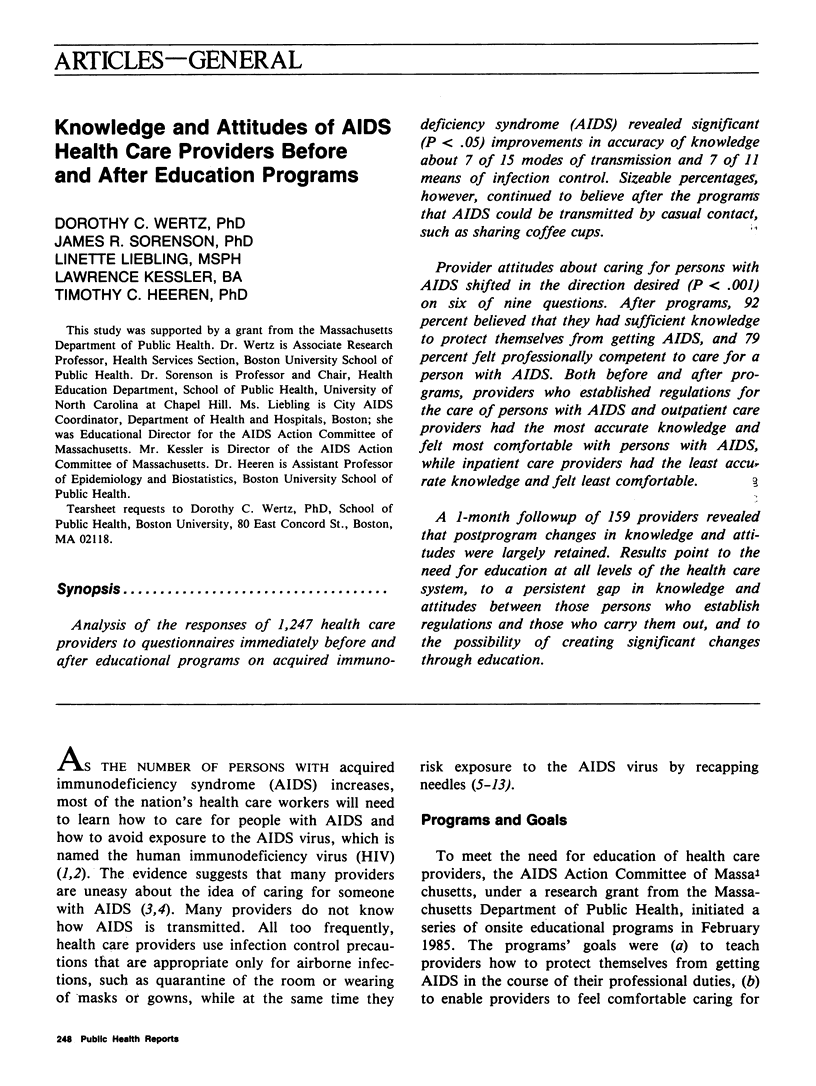
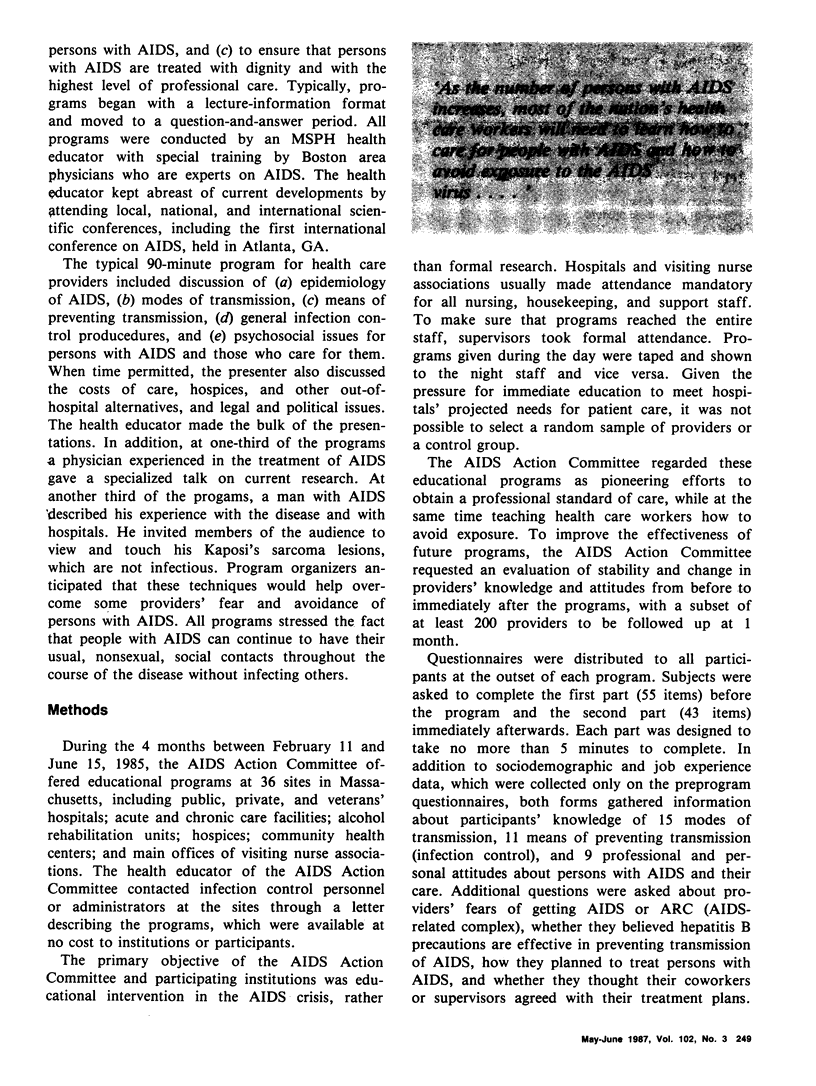
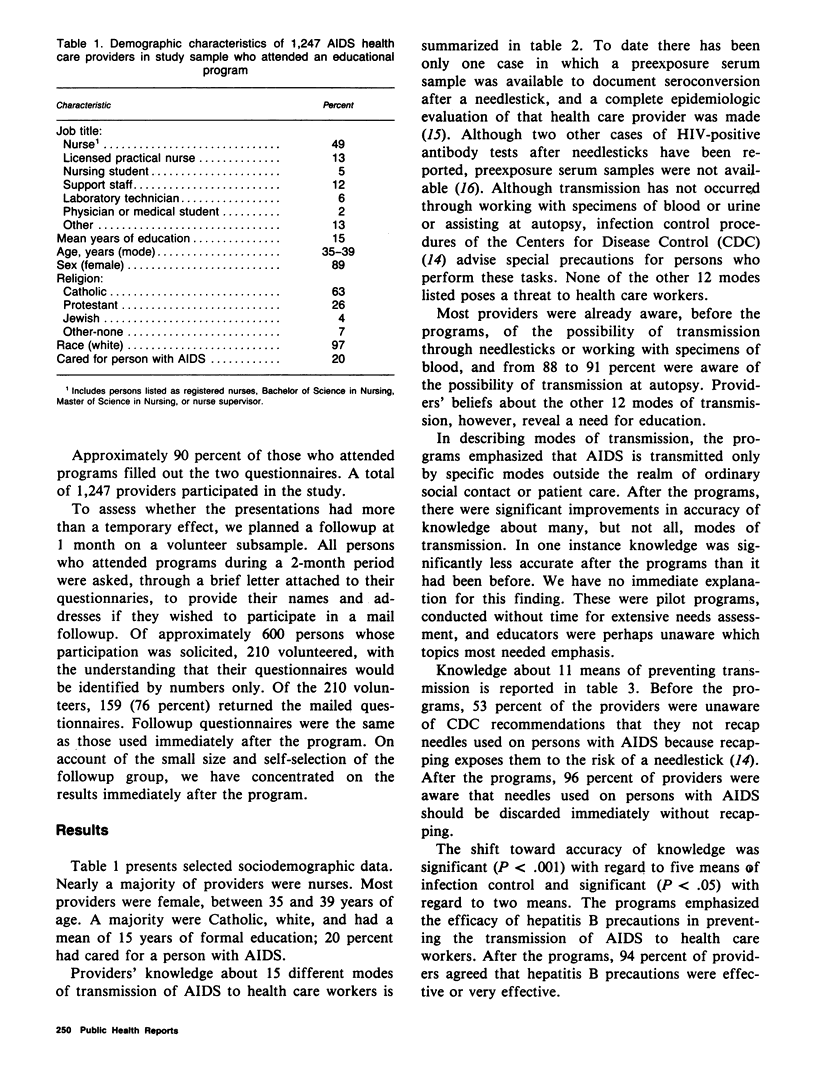
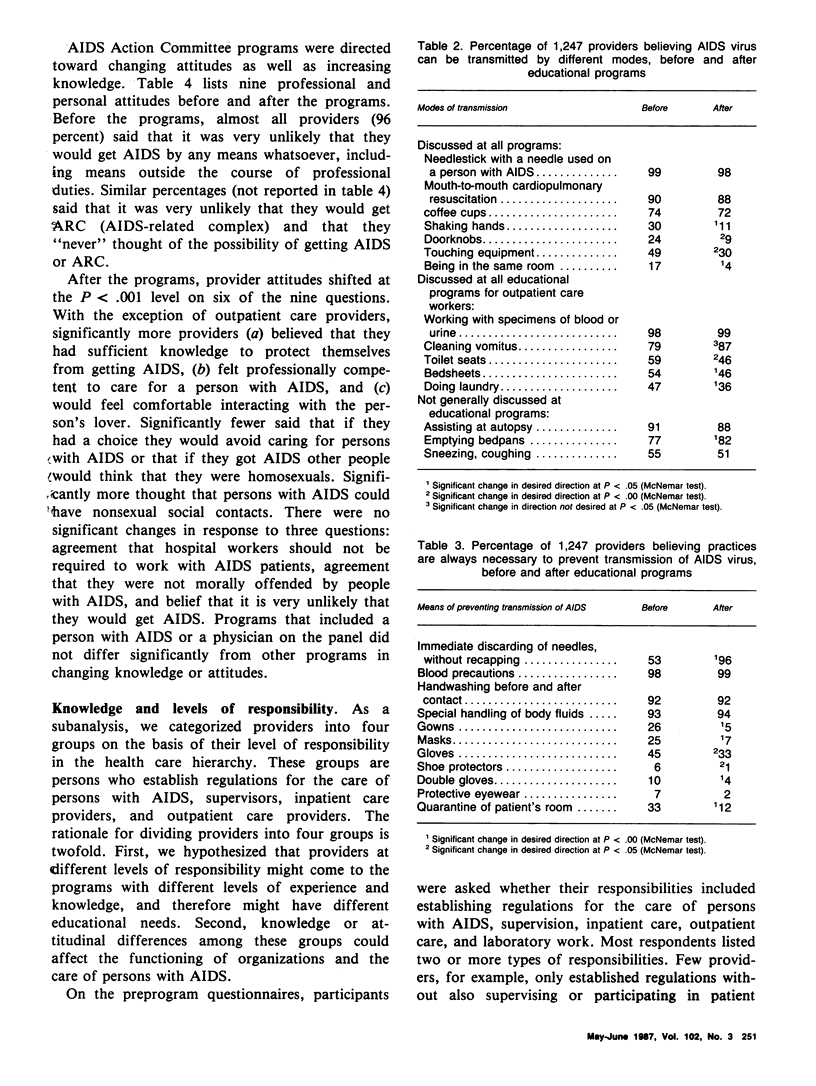
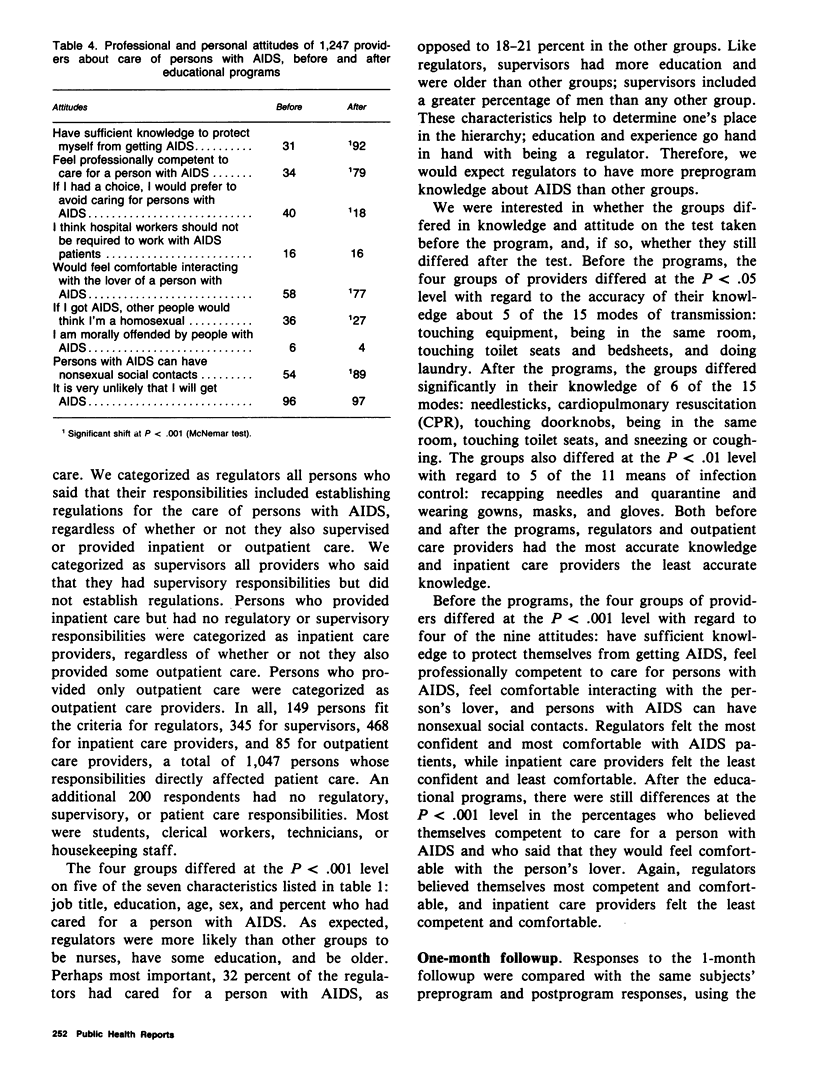
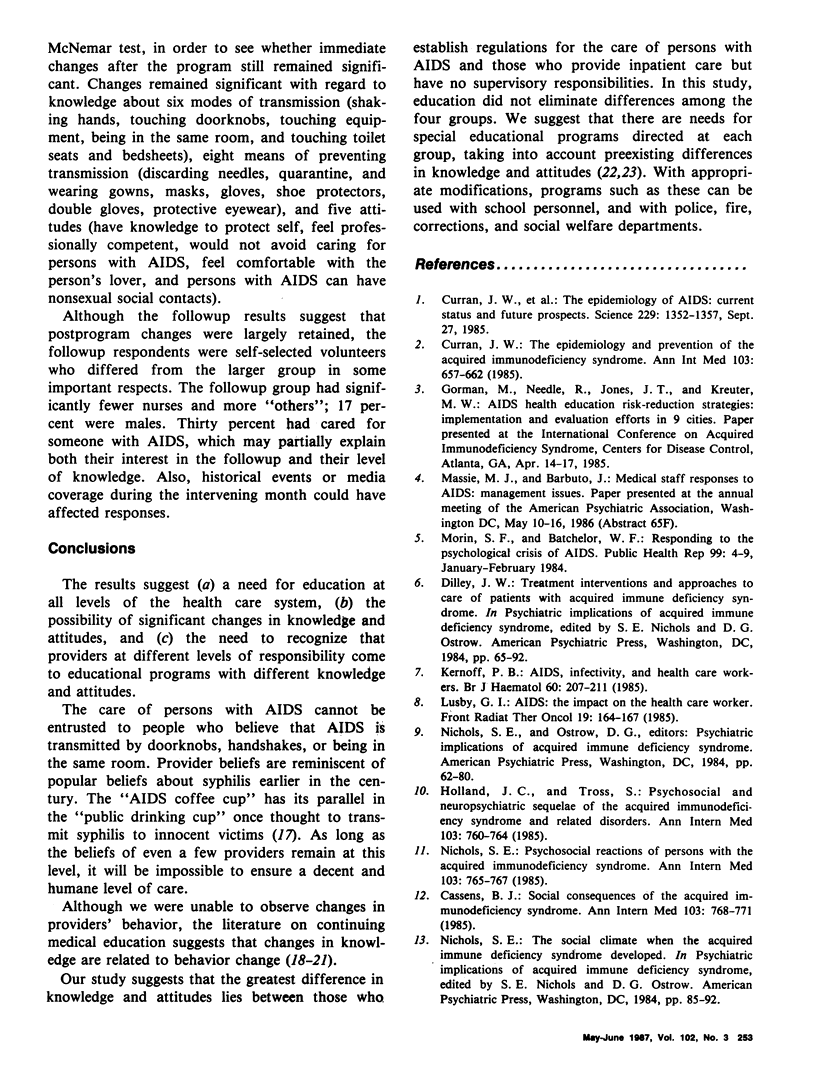
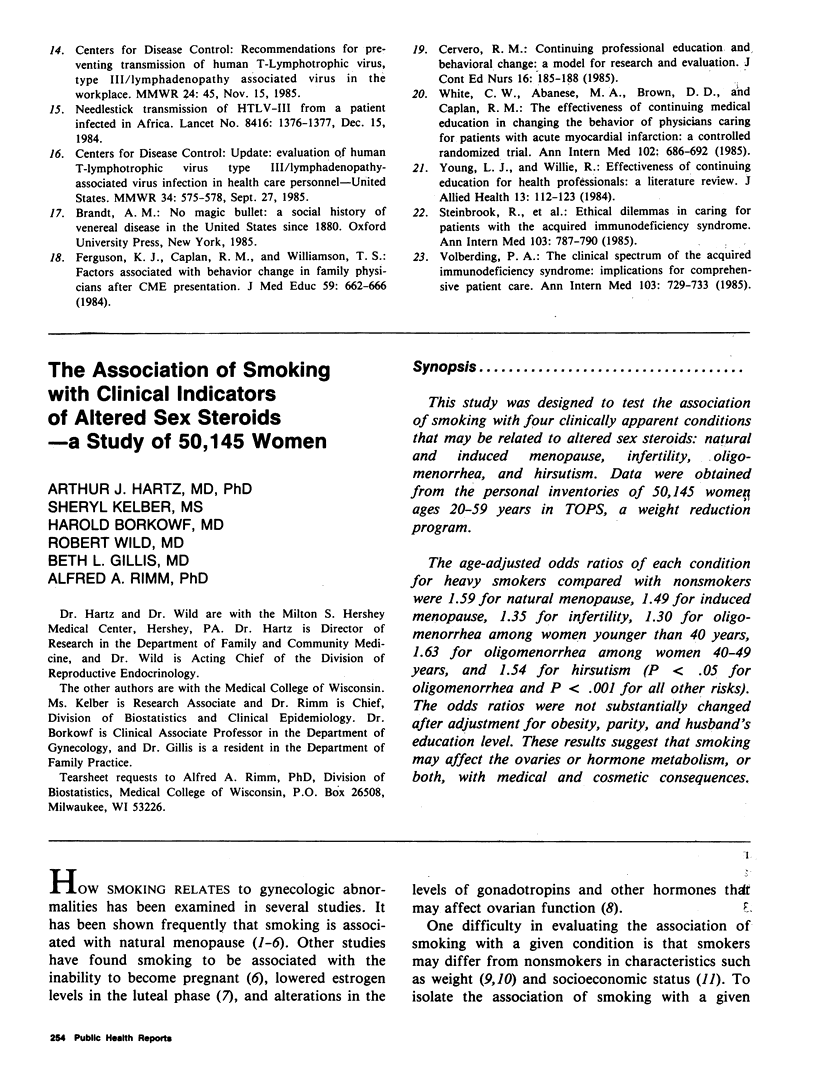
Selected References
These references are in PubMed. This may not be the complete list of references from this article.
- Cassens B. J. Social consequences of the acquired immunodeficiency syndrome. Ann Intern Med. 1985 Nov;103(5):768–771. doi: 10.7326/0003-4819-103-5-768. [DOI] [PubMed] [Google Scholar]
- Curran J. W., Morgan W. M., Hardy A. M., Jaffe H. W., Darrow W. W., Dowdle W. R. The epidemiology of AIDS: current status and future prospects. Science. 1985 Sep 27;229(4720):1352–1357. doi: 10.1126/science.2994217. [DOI] [PubMed] [Google Scholar]
- Curran J. W. The epidemiology and prevention of the acquired immunodeficiency syndrome. Ann Intern Med. 1985 Nov;103(5):657–662. doi: 10.7326/0003-4819-103-5-657. [DOI] [PubMed] [Google Scholar]
- Ferguson K. J., Caplan R. M., Williamson P. S. Factors associated with behavior change in family physicians after CME presentation. J Med Educ. 1984 Aug;59(8):662–666. doi: 10.1097/00001888-198408000-00007. [DOI] [PubMed] [Google Scholar]
- Holland J. C., Tross S. The psychosocial and neuropsychiatric sequelae of the acquired immunodeficiency syndrome and related disorders. Ann Intern Med. 1985 Nov;103(5):760–764. doi: 10.7326/0003-4819-103-5-760. [DOI] [PubMed] [Google Scholar]
- Kernoff P. B. AIDS, infectivity, and health care workers. Br J Haematol. 1985 Jun;60(2):207–211. doi: 10.1111/j.1365-2141.1985.tb07405.x. [DOI] [PubMed] [Google Scholar]
- Lusby G. I. AIDS: the impact on the health care worker. Front Radiat Ther Oncol. 1985;19:164–167. doi: 10.1159/000429360. [DOI] [PubMed] [Google Scholar]
- Nichols S. E. Psychosocial reactions of persons with the acquired immunodeficiency syndrome. Ann Intern Med. 1985 Nov;103(5):765–767. doi: 10.7326/0003-4819-103-5-765. [DOI] [PubMed] [Google Scholar]
- Steinbrook R., Lo B., Tirpack J., Dilley J. W., Volberding P. A. Ethical dilemmas in caring for patients with the acquired immunodeficiency syndrome. Ann Intern Med. 1985 Nov;103(5):787–790. doi: 10.7326/0003-4819-103-5-787. [DOI] [PubMed] [Google Scholar]
- Volberding P. A. The clinical spectrum of the acquired immunodeficiency syndrome: implications for comprehensive patient care. Ann Intern Med. 1985 Nov;103(5):729–733. doi: 10.7326/0003-4819-103-5-729. [DOI] [PubMed] [Google Scholar]
- White C. W., Albanese M. A., Brown D. D., Caplan R. M. The effectiveness of continuing medical education in changing the behavior of physicians caring for patients with acute myocardial infarction. A controlled randomized trial. Ann Intern Med. 1985 May;102(5):686–692. doi: 10.7326/0003-4819-102-5-686. [DOI] [PubMed] [Google Scholar]
- Young L. J., Willie R. Effectiveness of continuing education for health professionals: a literature review. J Allied Health. 1984 May;13(2):112–123. [PubMed] [Google Scholar]


